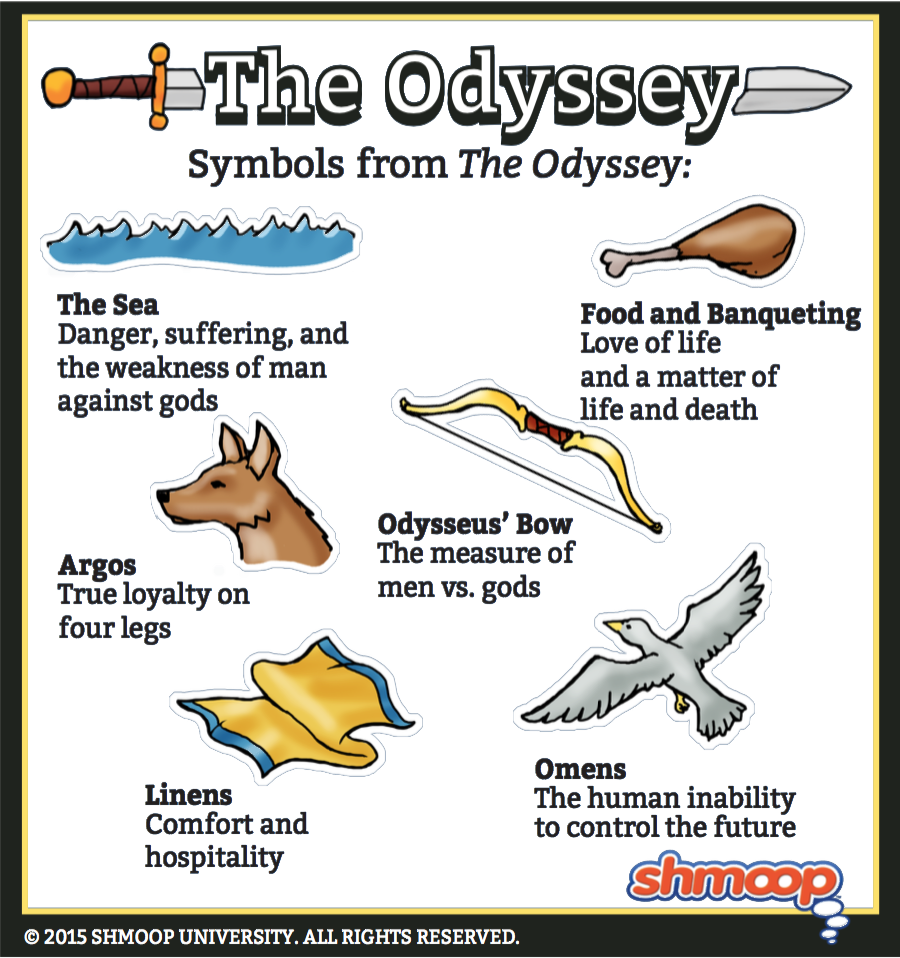Symbolism, Imagery, Allegory

(Click the character infographic to download.)
Frankly, if we were Odysseus, we'd never get in a boat again. (If fact, we suspect he won't: Teiresias tells him that he's actually going to live out his days inland, so far ashore that no one will recognize an oar.) The sea in the Odyssey is nothing but trouble. Every other line, it's throwing something else at him or his men, who are "bobbing like sea crows" right before the "god took away their homecoming" (12.417-19).
As Odysseus succinctly puts it to the Phaiakians,
We are Achaians coming from Troy, beaten off our true course by winds from every direction across the great gulf of the open sea, making for home, by the wrong way, on the wrong courses. So we have come. So it has pleased Zeus to arrange it. (9.259-262)
This little passage actually sums it up nicely: the sea seems to represent the huge gulf between the power of men and the power of the gods. The ancient Greeks may have been good sailors, but there's only so much you can do with a (relatively) small boat and a handful of men. Sailors put themselves at the mercy of the wind, and so the sea comes to represent, well, life itself: full of suffering, subject to angry gods, and very occasionally willing to send something good your way.